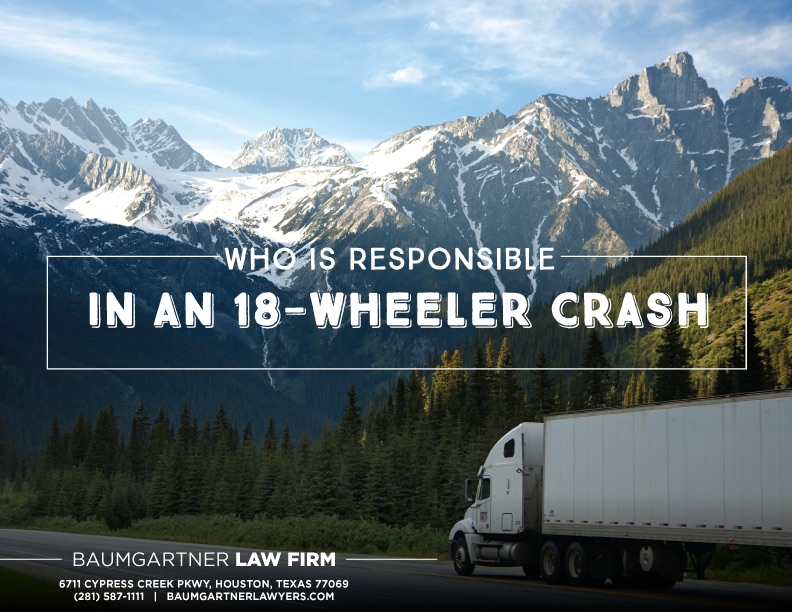
 Request FREE consultation - 1866-758-4529
Request FREE consultation - 1866-758-4529 
Each person or entity involved in a truck crash depends on the specific facts of each accident. In many cases, people often ask: Who is responsible for an 18-wheeler wreck? While each crash is unique, after investigation, who can be held legally responsible for causing a crash can be predictably determined.
The importance of an early investigation of a serious injury or wrongful death truck crash cannot be overstated. Only after conducting an investigation can an experienced attorney have a game plan for moving forward on the case. Not only can an early investigation help identify potentially responsible parties, but it can also uncover facts that clarify liability for some parties.
While exemplary damages or punitive damages are the exceptions rather than the rule in trucking accident litigation, the black box data or the condition of the tractor or trailer itself can sometimes lead to the potential of making a credible punitive damage claim.
Insurance companies for trucking companies have become very sophisticated in their defense of these commercial cases. One of the strategies that has been increasingly employed is for the company to put the tractor-trailer back in service as quickly as possible, thereby precluding the injured person or their family from collecting necessary information regarding the truck. If the tractor or trailer had bad brakes or other deficiencies, only an inspection can reveal that condition.
Under general legal principles, the trucking company has legal responsibility for its driver who was on the job and in the course and scope of his employment at the time of the crash. Additionally, the trucking company (Motor Carrier) has an independent responsibility to implement safety policies by the Federal Motor Carrier Safety Regulations.
Section 376.12 FMCSR makes clear that the company must retain exclusive possession, use, and control of the truck, making the “Motor Carrier” liable for the damages caused by the operation of the big rig.
Trucking Companies have been held to be “statutory employers” and responsible for the negligence of their drivers, even though the company does not own the rig and does not technically employ the driver if the driver operates under an arrangement with the company that is subject to the FMCSA as an interstate carrier.
In Morris v. JTM Materials, Inc., 78 SW3rd (Tex. App.-Fort Worth 2002, pet. filed), the court found an Interstate Motor Carrier has vicarious liability as a matter of law for the driver’s negligence as provided by the FMCSR.
The first step after an accident where you have been injured by an 18-wheeler is to research and contact the best 18-wheeler accident attorney you can find. It is important that you select an attorney who has the time to devote to your case and the experience necessary to achieve the best possible results. You do not want your case handled by a paralegal or by an inexperienced associate attorney.
Contact us for a free, no-obligation consultation regarding your rights and options after being injured by an 18-wheeler.
Related Resources: